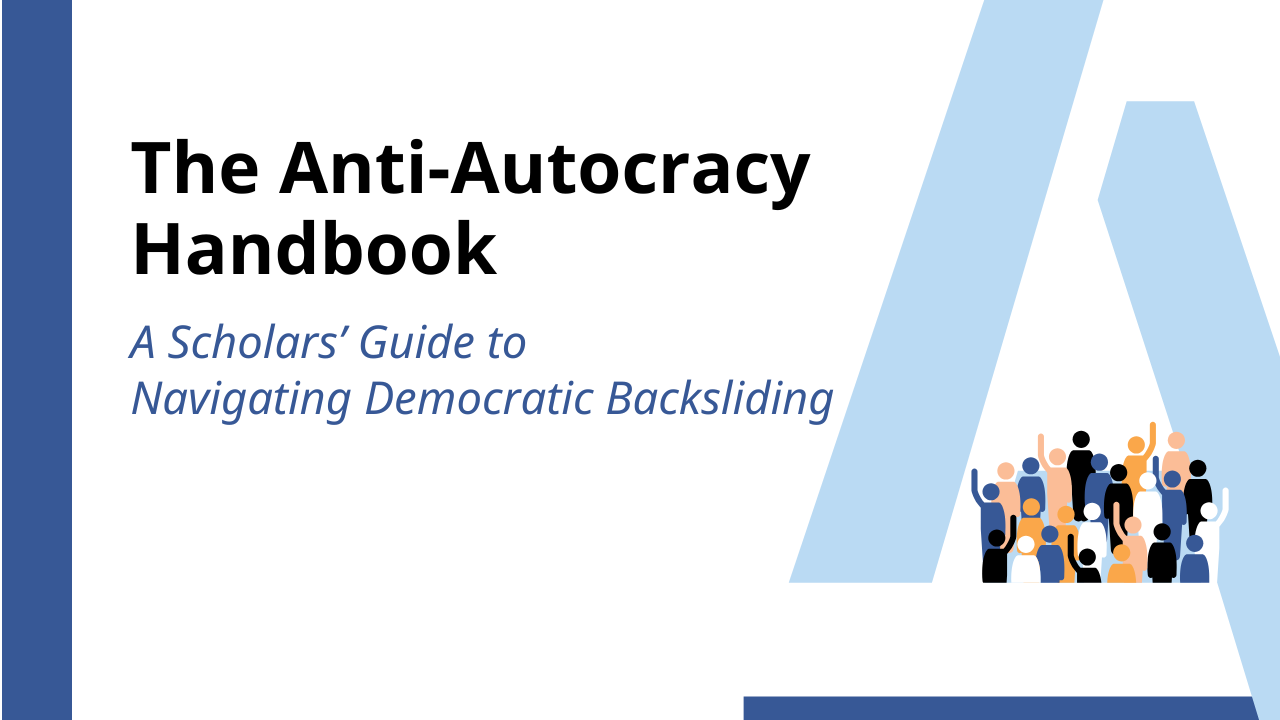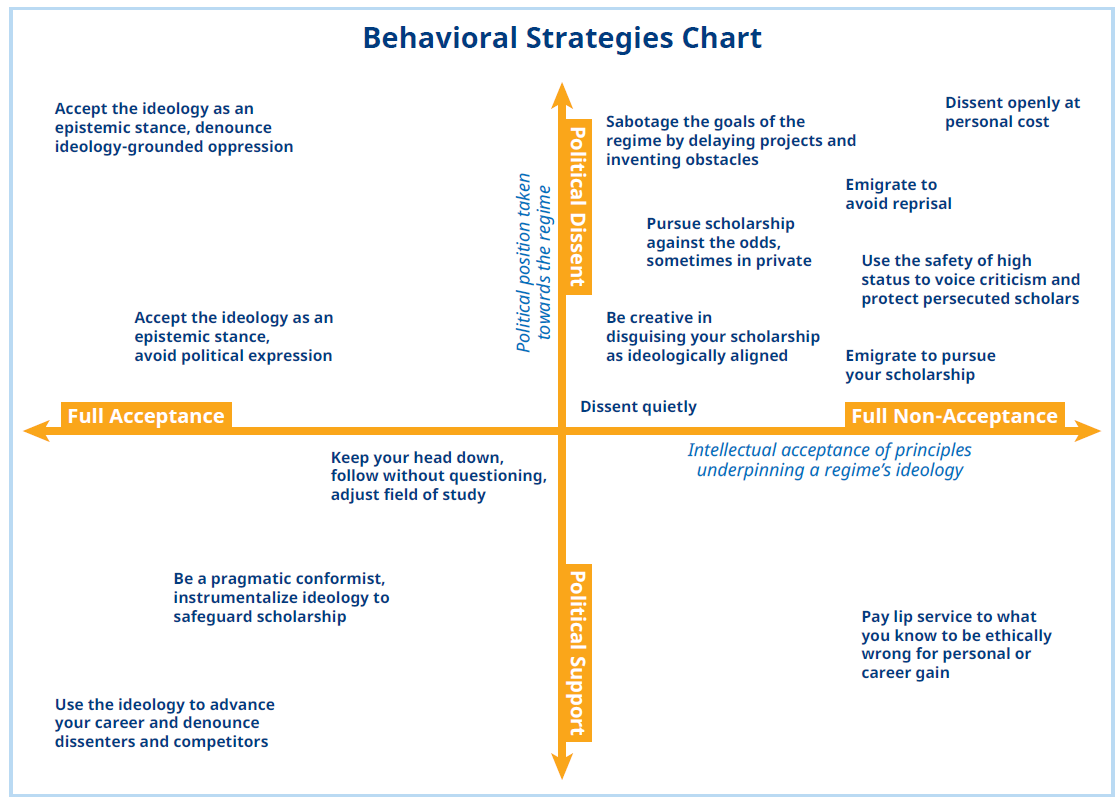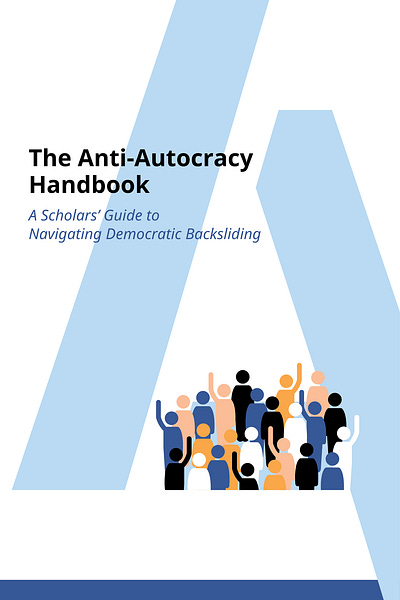The Anti-Autocracy Handbook for Scholars
Acquiesce or resist?

A consequential choice is currently being imposed on every single scholar in the US and many other countries.
Acquiesce or resist?
In this handbook, we outline how scholars can respond during democratic backsliding and encourage reflection on personal values and the consequences of different coping strategies, from full acceptance to active dissent.

While dissent obviously incurs risks (to funding, livelihood, personal and family safety), non-dissent is not without dramatic consequences either.
Research becomes subject to censorship and ideological control, with entire fields such as gender studies, climate science, and diversity, equity, and inclusion (DEI) being defunded or banned. Scholars may be compelled to align their work with regime-approved narratives, limiting intellectual freedom. Funding and collaboration opportunities are also curtailed—international partnerships may be prohibited, grants revoked arbitrarily, and publishing restricted to outlets controlled by the regime. Additionally, scholars are frequently subjected to loyalty rituals and surveillance, with their teaching and research monitored for political compliance.
Marginalization and discrimination further erode academic integrity, as certain ethnic, gender, or religious groups are privileged while others are excluded. Legal and informal threats, such as harassment through FOIA requests or intimidation by partisan mobs, create a climate of fear. This leads to widespread self-censorship and anticipatory obedience, where scholars avoid controversial topics to protect themselves.
Over time, these pressures contribute to cultural shifts within academia, fostering conformity and silence. Younger scholars, shaped by these norms, may internalize authoritarian values, further weakening the potential for future dissent and critical inquiry.
Thus, acquiescing to regime demands fundamentally subverts the academic enterprise and free inquiry as we know it, instrumentalizing scholars and transforming science into a tool of the regime to manipulate citizens and entrench autocratic power more permanently.
The negative consequences of scholars non-dissenting thus ripple far beyond the individual leading to net-negative societal outcomes for ordinary citizens.
So from an intellectual, moral and social utilitarian perspective, dissent might be the preferred option for scholars.
But how to go about it?
In the handbook, we outline possible actions based on a risk continuum from low to extreme, as well as actions scholars should take independent of personal risk.
1. Risk-Independent Actions
Prioritize self-care and community building.
Enhance digital and physical security.
Use precise language and resist misinformation.
2. Low Risk
Engage with media, public, and policymakers.
Educate youth and support democratic institutions.
3. Medium Risk
Support endangered research and researchers.
Protect vulnerable research participants.
Archive and safeguard data.
4. High Risk
Practice discreet resistance (e.g., “Švejkism”).
Build trust and solidarity.
Gauge institutional support and seek allies.
5. Extreme Risk
Focus on survival and strategic retreat.
Tell your story (anonymously if needed).
Seek relocation or protective networks.
Please consult the handbook for more information. While these actions focus on the individual, collective resistance will be key to free the future.
Truth-telling and solidarity are foundational for the epistemic integrity of democracy; and in trying times, we scholars need to muster the courage to fulfill our duty to society. Even small acts of defiance matter. No cavalry is coming to safeguard the fruits of the enlightenment. It is up to all of us.
Science is our candle in the dark.
Stay safe. Stay smart. Stay connected.
Cite as:
Lewandowsky, S., Kempe, V., Armaos, K., Hahn, U., Abels, C. M., Wibisono, S., Louis, W., Sah, S., Pagel, C., Jankowicz, N., DiResta, R., Markolin, P., Schönemann, H., Hertwig, R., Crull, H., Mauer, B., Holford, D., Lopez-Lopez, E., & Cook, J. (2025). The Anti-Autocracy Handbook: The Scholars’ Guide to Navigating Democratic Backsliding. Zenodo. https://doi.org/10.5281/zenodo.15511257.
Accompanying the handbook is a living wiki that will continue to incorporate new developments and provide updates on global efforts by scholars to push back against authoritarianism and safeguard the democratic foundations that enable free inquiry.


